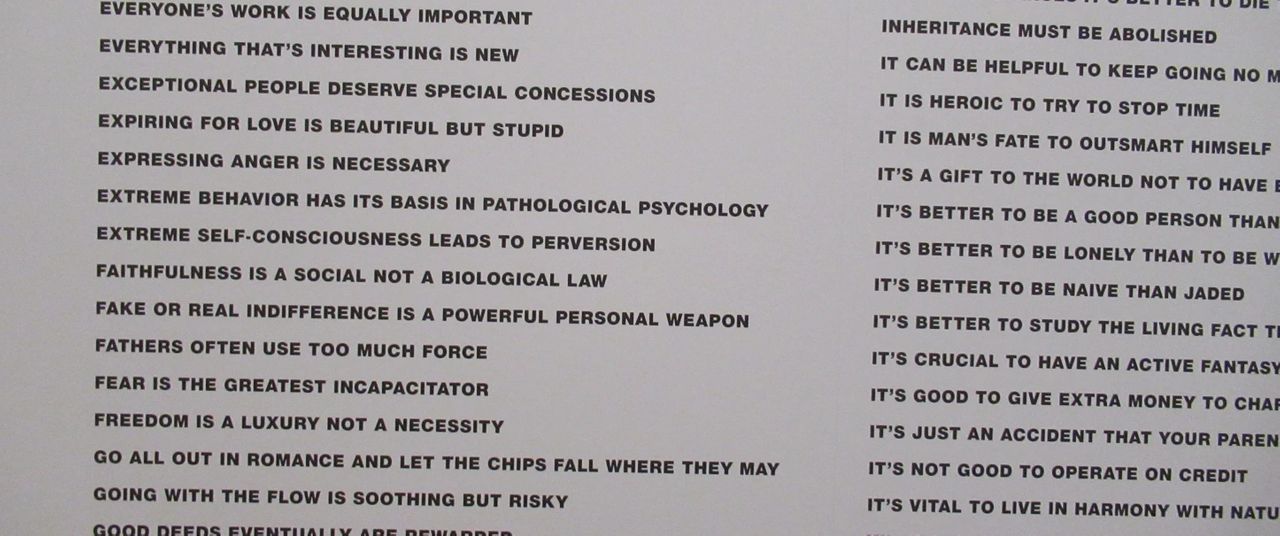It's better to be naive than jaded

Jenny Holzer's "truisms" series has a durable place in my mind. In name alone they are contradictory; so many of the statements aren't obviously true, but are instead slogans or inflammatory rhetoric. The phrases aren't copyrighted by the artist. The typography, layout, format are recognizable but basic.
I like a lot of the truisms that draw a contrast. This one, for example: "It's better to be naive than jaded." Are these things even in opposition? Can one be both, or neither? It's better for who?
It rumbles around like a koan in my mind.
I'm not old, but I'm old enough to have done a lot of things a few times: jobs, relationships, places. I've started to be tempted to draw conclusions from these experiences. Some things work, others don't. By avoiding the improbable paths and going with what works, what fits the patterns in history, I'll learn from history.
We have a saying for that, from George Santayana: "Those who cannot remember the past are condemned to repeat it." But our memory is post-Gutenberg and post-Internet, and I think we can say that a lot of history is cyclical by nature, not just because of our carelessness.
I am struck by how many big, intimidating things I did when I was younger, simply because I didn't know to be intimidated by them and I had time and privilege. How many of those projects would I embark on now, knowing that to really finish might be impossible?
Conversely, I look back on ideas and projects that seemed infeasible a few years ago or that have been tried a hundred times without success. But then someone, unaware of history, tries for the hundred and first time, and it works. If they were scholars of history, they'd know about the failures, how people more talented and resourced than them had tried. They would avoid the idea altogether.
But ideas don't live in a vacuum - they exist in a changing world, in which culture, technology, and trends change how well they'll work. How much do those things matter? At least a bit. At the extreme of that opinion lies Ray Kurzweil:
I quickly realized that timing is the critical factor in the success of inventions. Most technology projects fail not because the technology doesn’t work, but because the timing is wrong – not all of the enabling factors are at play where they are needed.
When I work now, when I write or create, I often feel like I know more of the map than I knew before. Failure dims some paths, success lights up others, leading me one way or another. Failure is jadedness, success might be knowledge.
But I think we need to make a conscious effort to realize: every time is different. Even if you put the same effort in and make the same decisions, the world, the people in it, and you, have all changed. What worked before, might not work now. The idea that failed before, well - maybe its day has come.
@macwright.com on Bluesky, @tmcw@mastodon.social on Mastodon